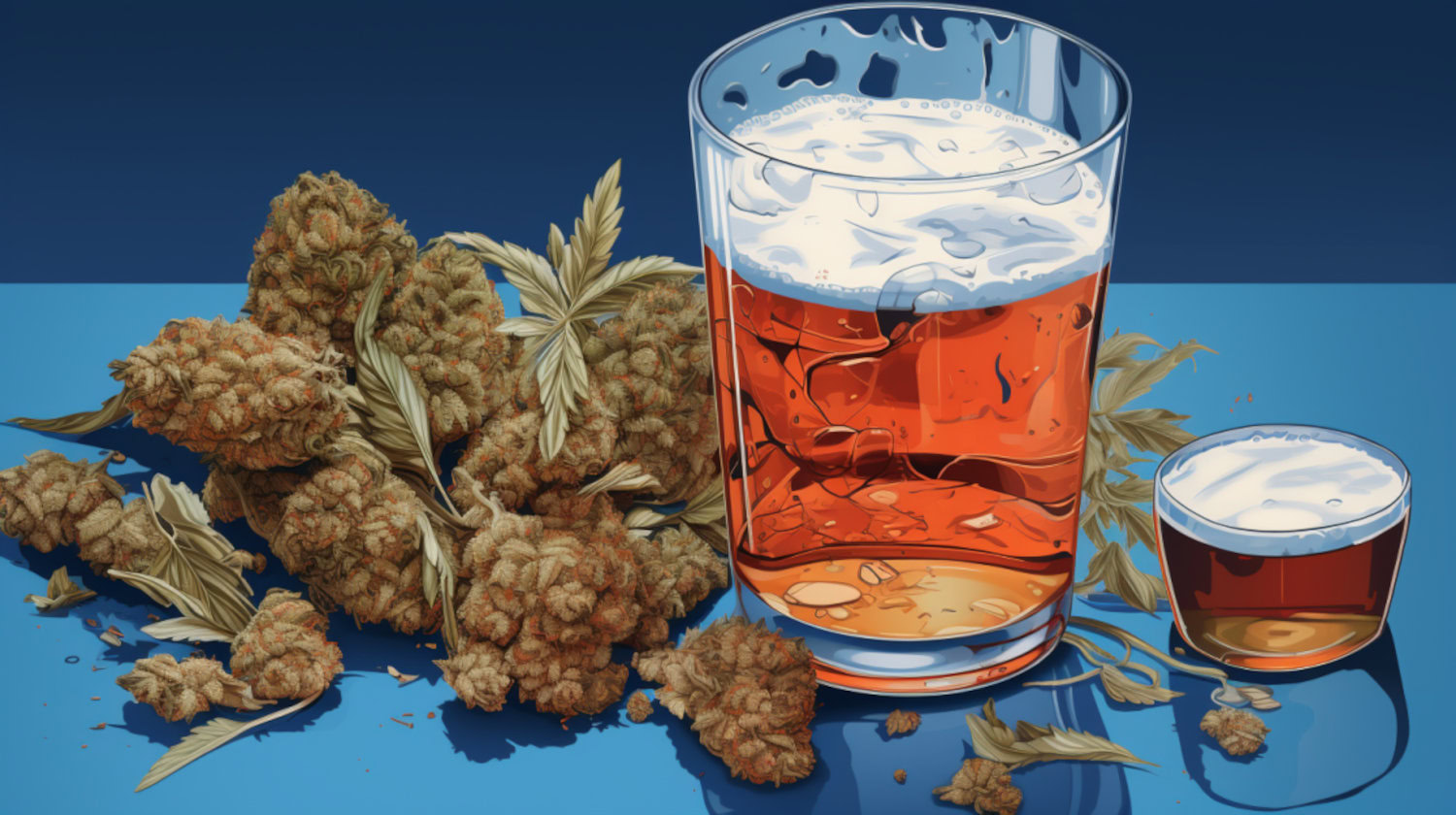In This Article
A new NuggMD poll has found that more than half of cannabis consumers say they drink less alcohol or none at all after using the plant. The poll of nearly 400 cannabis consumers illustrates the concept of the substitution effect, with adults choosing cannabis to avoid the negative effects of alcohol.
When asked how using cannabis affected their alcohol use, 54% of survey respondents said that they “tend to drink less or not at all” when they use cannabis. More than one out of five (22%) said that there is no relationship between their use of cannabis and alcohol, while 14% reported that it “depends on the circumstances.” Less than one out of 10 (9%) said they drank more alcohol when they used cannabis.
The survey of 381 cannabis consumers was conducted from January 9 through January 12. The poll had a reported margin of error of 5%.
Alexandra Arnett, lead researcher and fact checker at NuggMD, says the poll’s results are consistent with the findings of earlier surveys.
“Today’s cannabis consumers are turning to the plant more for wellness than indulgence, a trend we consistently have been observing in our polling data,” Arnett told online cannabis news source Marijuana Moment.
“From a public health perspective, the replacement effect cannabis use seems to have on alcohol consumption is a positive shift,” she added. “Many people are substituting a potentially fatal substance with one that isn’t. However, this replacement is only a safe, practical option in state-legal recreational markets. Our internal estimates show that 47 percent of Americans and 37 percent of domestic cannabis consumers still live in states without access to these markets.”
“Although there has been a positive shift from alcohol use to cannabis use, from a policy standpoint, federal and state prohibition is restricting the potential benefits cannabis could offer society,” Arnett said.
Survey Results Consistent with Previous Research
Other research has also revealed a trend toward cannabis and away from alcohol for American adults. A survey backed by the National Institute on Drug Abuse (NIDA) that was released last month determined that young adults are nearly three times as likely to use cannabis on a daily or near-daily (DND) basis than to drink alcohol at the same frequency. Adults aged 35 to 50 had roughly even rates of daily or near-daily use of cannabis and alcohol, while older survey participants had higher rates of daily or near-daily alcohol use compared to cannabis.
“Overall, there has been a crossover of DND use of cannabis and DND use of alcohol among young adults in the past decade,” a report on the research concludes. “As of 2023, DND cannabis use was more prevalent than DND alcohol use among those ages 19 to 30. Early midlife adults have had a convergence, but not yet a crossover.”
Currently, the authors of the report note, “DND alcohol use remains more prevalent than DND cannabis use among adults ages 55 and older, although if trends continue this may shift in the coming years.”
A study by Canadian researchers, where cannabis has been federally legal since 2018, found that cannabis legalization was “associated with a decline in beer sales.” The data analyzed by researchers from the University of Manitoba, Memorial University of Newfoundland, and the University of Toronto suggests that the substitution effect was leading consumers to choose cannabis over alcohol more frequently.
“Canada-wide beer sales fell by 96 hectoliters per 100,000 population immediately after non-medical cannabis legalization and by 4 hectoliters per 100,000 population each month thereafter for an average monthly reduction of 136 hectoliters per 100,000 population post-legalization,” the researchers wrote.
Learn about the risks of combining alcohol and cannabis. And sign up for NuggMD's Weekly Sesh newsletter for the latest cannabis news, consumer tips, and recommendations.
The information in this article and any included images or charts are for educational purposes only. This information is neither a substitute for, nor does it replace, professional legal advice or medical advice, diagnosis, or treatment. If you have any concerns or questions about laws, regulations, or your health, you should always consult with an attorney, physician or other licensed professional.



